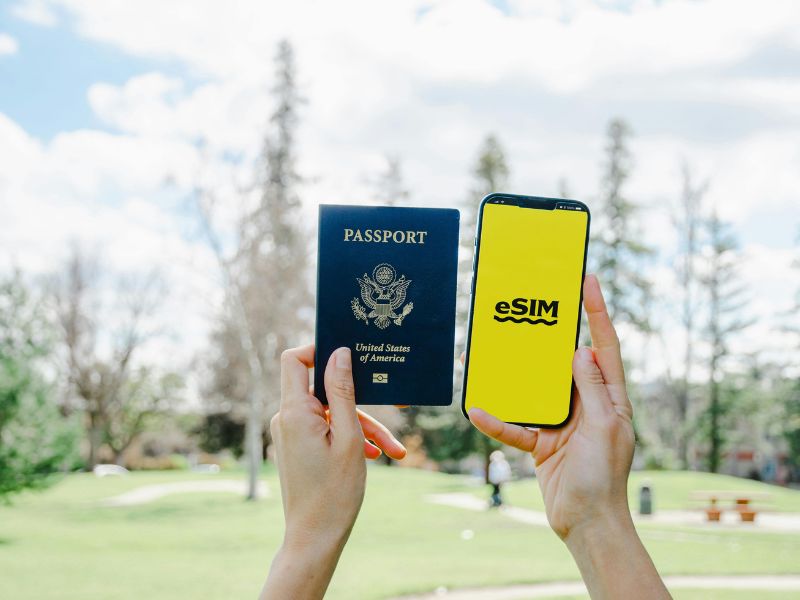One of the most important routes for qualified foreign workers looking for work in the US is the H-1B visa program. This program, which was created especially for jobs needing specific knowledge and skills, enables American businesses to recruit highly skilled foreign workers in industries including technology, finance, healthcare, and engineering.
It can be difficult to navigate the complicated world of H-1B sponsorship, but knowing which businesses are actively employing foreign workers and leading the way in visa sponsorship can greatly increase your chances of finding work and starting a prosperous career in the United States.
Understanding the H-1B Visa Program
The H-1B visa is a nonimmigrant visa that permits U.S. employers to employ foreign workers in specialty occupations. These occupations typically require a bachelor’s degree or higher in a specific field of study. Key features of the H-1B visa include:
- Duration: Initially valid for three years, extendable up to six years.
- Employer Sponsorship: Applicants must have a job offer from a U.S. employer who will file the H-1B petition on their behalf.
- Annual Cap: There is a statutory limit of 85,000 new H-1B visas issued each fiscal year, with 20,000 reserved for workers with a U.S. master’s degree or higher.
Importance of Choosing the Right H-1B Sponsor
Selecting the right employer for H-1B sponsorship is crucial for several reasons:
- Approval Rates: Companies with a history of successful H-1B petitions may offer a smoother application process.
- Job Stability: Established firms may provide more job security and resources for visa processing.
- Career Growth: Leading companies often offer better opportunities for professional development and advancement.
Top H-1B Sponsorship Companies in the U.S
Based on data from 2024, the following companies have been prominent in H-1B visa sponsorship:
1. Amazon.com Services LLC
- Number of Petitions: 13,205
- Average Salary: $146,280
- Industry: E-commerce and Cloud Computing
- Roles Sponsored: Software Development Engineers, Data Scientists, IT Managers
Amazon continues to lead in H-1B sponsorship, reflecting its expansive growth and reliance on global talent to drive innovation. The company offers competitive salaries and a dynamic work environment.
2. Cognizant Technology Solutions US Corp
- Number of Petitions: 13,077
- Average Salary: $103,099
- Industry: IT Services and Consulting
- Roles Sponsored: Software Developers, Systems Analysts, IT Consultants
Cognizant remains a top destination for H-1B applicants, emphasizing its commitment to integrating international expertise into its service offerings.
3. Ernst & Young U.S. LLP
- Number of Petitions: 11,113
- Average Salary: $140,955
- Industry: Professional Services and Consulting
- Roles Sponsored: Auditors, Tax Consultants, Advisory Professionals
As a member of the Big Four accounting firms, Ernst & Young leverages global talent to provide comprehensive professional services, making it a significant H-1B sponsor.
4. Google LLC
- Number of Petitions: 9,919
- Average Salary: $169,892
- Industry: Technology
- Roles Sponsored: Software Engineers, Data Analysts, Research Scientists
Google’s dedication to innovation is evident in its substantial H-1B sponsorships, attracting top-tier international professionals to maintain its competitive edge.
5. Tata Consultancy Services Limited
- Number of Petitions: 8,541
- Average Salary: $105,398
- Industry: IT Services and Consulting
- Roles Sponsored: IT Analysts, Software Developers, and Project Managers
Tata Consultancy Services continues to be a major player in the IT sector, utilizing H-1B visas to enhance U.S. operations with skilled professionals.
6. Microsoft Corporation
- Number of Petitions: 7,819
- Average Salary: $165,268
- Industry: Technology
- Roles Sponsored: Software Engineers, Cloud Specialists, AI Researchers
Microsoft’s robust H-1B sponsorship reflects its ongoing commitment to incorporating diverse talent to drive technological advancements.
7. Infosys Limited
- Number of Petitions: 7,804
- Average Salary: $100,729
- Industry: IT Services and Consulting
- Roles Sponsored: Technology Analysts, Systems Engineers, Consultants
Infosys maintains a strong presence in the U.S. market, relying on H-1B visas to fulfill its client needs with specialized talent.
8. Apple Inc.
- Number of Petitions: 4,088
- Average Salary: $190,077
- Industry: Technology
- Roles Sponsored: Hardware Engineers, Software Developers, and Design Specialists
Apple’s emphasis on innovation and quality is supported by its recruitment of international experts through the H-1B program.
9. Meta Platforms, Inc. (Formerly Facebook)
- Number of Petitions: 4,011
- Average Salary: $183,374
- Industry: Technology
- Roles Sponsored: Software Engineers, Data Scientists, Product Designers
Meta, a leading player in the tech industry, heavily invests in AI, virtual reality, and data analytics. With its focus on global expansion, the company continues to sponsor a significant number of H-1B workers.
10. Deloitte Consulting LLP
- Number of Petitions: 3,992
- Average Salary: $138,500
- Industry: Consulting and Professional Services
- Roles Sponsored: Business Analysts, IT Consultants, Cybersecurity Experts
Deloitte remains a powerhouse in consulting and professional services, relying on skilled international professionals to deliver top-tier solutions for its global clientele.
Other Notable H-1B Sponsors
While the top 10 companies dominate H-1B sponsorship, several other firms actively participate in the program. Some of these include:
- JP Morgan Chase & Co. (Finance)
- Goldman Sachs & Co. (Investment Banking)
- IBM Corporation (Technology)
- Cisco Systems, Inc. (Networking and Telecommunications)
- Intel Corporation (Semiconductors and AI Research)
These organizations provide competitive salaries and robust career growth opportunities for H-1B applicants.
How to Find an H-1B Sponsorship Job
Finding an employer that sponsors H-1B visas requires strategic job searching. Below are some effective approaches:
1. Research Companies with a Strong Sponsorship History
- Use platforms like MyVisaJobs and H1BGrader to check H-1B approval rates.
- Look at the US Department of Labor’s H-1B Data Disclosure for a list of sponsors.
2. Use Job Portals with Visa Sponsorship Filters
- Websites like LinkedIn, Glassdoor, and Indeed allow users to search for job listings specifically mentioning “H-1B sponsorship available.”
3. Network with Current H-1B Workers
- Connect with professionals in your field through LinkedIn, Meetup, and industry conferences.
- Reach out to employees working at your target companies to inquire about sponsorship.
4. Target STEM and In-Demand Occupations
- Fields like Software Development, Data Science, Cybersecurity, and Engineering have high H-1B approval rates.
- The U.S. faces shortages in healthcare, biotechnology, and AI, increasing demand for foreign professionals.
5. Work with Immigration Attorneys or Recruitment Agencies
- Some law firms and staffing agencies specialize in placing foreign professionals in H-1B-sponsoring roles.
Steps in the H-1B Sponsorship Process
Once you secure a job with an H-1B sponsor, the following steps outline the visa process:
1. Employer Files an LCA (Labor Condition Application)
- The employer submits the LCA to the Department of Labor, ensuring that hiring a foreign worker will not affect U.S. wages and working conditions.
2. Employer Files Form I-129 (H-1B Petition)
- The company submits Form I-129 to the U.S. Citizenship and Immigration Services (USCIS), detailing the job role, salary, and work location.
3. H-1B Lottery (If Applicable)
- If demand exceeds the 85,000 visa cap, a lottery system selects petitions randomly.
4. USCIS Approval and Visa Stamping
- Once approved, applicants schedule an interview at the U.S. consulate in their home country for visa stamping.
5. Start Working in the U.S.
- After visa approval, the employee can enter the U.S. and begin working.
Alternative Visa Options If You Don’t Get an H-1B
If you are not selected in the H-1B lottery or face challenges in securing an H-1B sponsorship, several alternative visa options may allow you to work in the U.S. Here are some viable alternatives:
1. L-1 Visa (Intra-Company Transfer Visa)
Best for: Employees of multinational companies transferring to a U.S. office.
The L-1 visa is available for employees who work for a multinational company that has operations both abroad and in the U.S. This visa is particularly useful for individuals who:
- Have worked for the company outside the U.S. for at least one year in the last three years.
- Are transferring to a U.S. office in a managerial, executive, or specialized knowledge role.
Key Benefits:
No annual cap like the H-1B visa.
Dual intent, meaning you can apply for a green card later.
Available for up to seven years (L-1A) for managers/executives and up to five years (L-1B) for specialized knowledge employees.
Challenges:
Requires employment with a multinational company.
Must return to the same employer in the U.S.
2. O-1 Visa (For Individuals with Extraordinary Ability)
Best for: Highly skilled professionals in STEM, arts, business, education, or athletics.
The O-1 visa is for individuals with extraordinary ability in their respective fields. This means you must demonstrate a high level of expertise and recognition through awards, publications, patents, or major contributions to your field.
Key Benefits:
No cap or lottery restrictions.
Valid for up to three years, with unlimited one-year extensions.
Can lead to permanent residency (EB-1 Green Card).
Challenges:
Requires significant proof of extraordinary ability.
Needs a U.S. employer or agent as a sponsor.
3. TN Visa (For Canadian and Mexican Citizens)
Best for: Professionals from Canada and Mexico in eligible occupations.
The TN visa is a work visa under the USMCA (formerly NAFTA) agreement, allowing Canadian and Mexican citizens to work in certain professional roles in the U.S.
Key Benefits:
No annual cap or lottery.
Fast processing—Canadians can apply at the border.
Renewable indefinitely in three-year increments.
Challenges:
Limited to specific job categories (e.g., accountants, engineers, scientists).
Only available to Canadian and Mexican citizens.
4. E-2 Visa (Investor Visa)
Best for: Entrepreneurs and investors from treaty countries.
The E-2 visa allows individuals to live and work in the U.S. by investing in a business. You must invest a substantial amount of capital in a U.S. enterprise and play an active role in its operation.
Key Benefits:
No fixed investment amount, but generally $100,000+ is recommended.
Renewable indefinitely as long as the business remains operational.
Spouses can apply for work authorization.
Challenges:
Limited to citizens of E-2 treaty countries.
No direct path to a green card.
5. F-1 Visa (OPT and STEM OPT for International Students)
Best for: Foreign students studying in the U.S. who want to work temporarily after graduation.
The F-1 visa is a student visa, but graduates of U.S. universities can work under:
- Optional Practical Training (OPT): 12-month work authorization after graduation.
- STEM OPT Extension: Additional 24 months for STEM degree holders, for a total of 36 months of work authorization.
Key Benefits:
No employer sponsorship is needed for OPT.
More time to secure an H-1B or another work visa.
Can transition to an H-1B or a green card while working.
Challenges:
Temporary solution—must eventually switch to another visa.
Non-STEM graduates only get 12 months of OPT.
6. J-1 Visa (Exchange Visitor Program)
Best for: Researchers, interns, and trainees in specific fields.
The J-1 visa allows foreign nationals to participate in work and study exchange programs in the U.S., such as:
- Internships and Trainee Programs.
- Research and Teaching Positions.
- Medical Residency Programs.
Key Benefits:
No annual cap.
Ideal for temporary training or research positions.
Challenges:
May have a two-year home residency requirement before switching to another visa.
Requires a program sponsor.
7. H-2B Visa (For Non-Agricultural Temporary Workers)
Best for: Temporary or seasonal non-agricultural jobs.
The H-2B visa allows foreign workers to fill temporary, seasonal, or peak-load positions in industries such as hospitality, construction, and landscaping.
Key Benefits:
No specific degree requirement.
Good option for short-term employment.
Challenges:
Subject to an annual cap of 66,000 visas.
Jobs are often low-skilled and temporary.
8. EB-2 and EB-3 Green Card Sponsorship (PERM Process)
Best for: Skilled workers, professionals, and advanced-degree holders.
If your employer is willing to sponsor you for permanent residency, you may qualify for:
- EB-2 Visa: For individuals with advanced degrees (master’s or higher) or exceptional ability.
- EB-3 Visa: For skilled workers with at least two years of experience or professionals with a bachelor’s degree.
Key Benefits:
Leads directly to a green card.
No need for an H-1B if your employer sponsors you for permanent residency.
Challenges:
Requires employer sponsorship and labor certification (PERM).
Processing can take several years depending on country quotas.
Choosing the Right Alternative
If you don’t secure an H-1B visa, there are still many options depending on your background and goals:
| Visa Type | Best For | Duration | Employer Sponsorship Needed? |
|---|---|---|---|
| L-1 | Intra-company transfers | Up to 7 years | Yes |
| O-1 | Highly skilled professionals | Renewable indefinitely | Yes |
| TN | Canadian & Mexican professionals | 3 years, renewable | Yes |
| E-2 | Investors & Entrepreneurs | Renewable indefinitely | No |
| F-1 OPT/STEM | U.S. graduates | Up to 3 years | No (OPT), Yes (H-1B later) |
| J-1 | Interns, researchers | Varies | Yes |
| H-2B | Seasonal non-agricultural workers | Up to 3 years | Yes |
| EB-2/EB-3 Green Card | Skilled workers & professionals | Permanent | Yes |
If your H-1B application is unsuccessful, consider applying for another visa category that matches your skills and situation. Many professionals use L-1, O-1, or TN visas as alternatives, while others explore green card sponsorship (EB-2/EB-3) for long-term U.S. residency.
Conclusion
Research, strategic networking, and focusing on high-demand industries are necessary to find an H-1B sponsor. For international experts looking for work in the United States, companies like Amazon, Google, Microsoft, and Deloitte are excellent targets because they routinely rank among the top sponsors.
International job searchers can increase their chances of landing a job and launching a prosperous career in the US by utilizing job portals, industry connections, and alternative visa possibilities.






